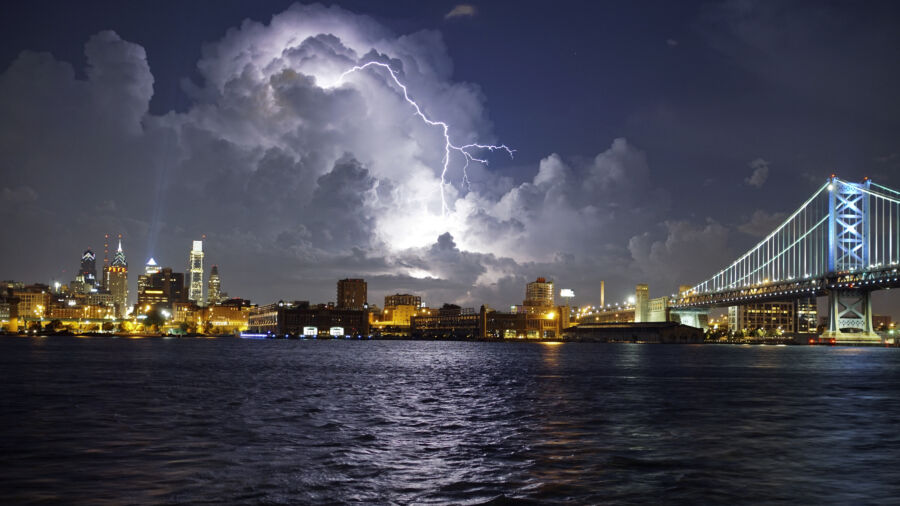Tap water in Philadelphia will “remain safe” to drink until Tuesday afternoon as officials monitor and test drinking water following a March 24 chemical spill in the nearby Delaware River.
“The Philadelphia Water Department (PWD) is confident that tap water from the Baxter Drinking Water Treatment Plant will remain safe to drink and use at least through 3:30 p.m. tomorrow (Tuesday, March 28, 2023),” the statement reads.
The PWD credits the treatment and continuous testing of the water currently available to residents for this assurance. Officials expect that residual water in the Delaware River will not be contaminated by Wednesday or Thursday of this week, according to the statement.
PWD said it will continue testing the water to ensure that no contaminated water enters the water treatment system. Officials cautiously believe the “ongoing event” will be resolved by next week.
Officials are closely monitoring the water in the Delaware River and said they will immediately notify the public if water quality sampling indicates a potential impact on the raw water basin at the Baxter Water Treatment Plant.
“The water that is currently available to customers has been treated and tested to confirm that it is safe to drink and use for bathing, cooking, and washing,” according to the statement.
In an earlier statement, city officials said residents “who want to make sure they have water available can fill bottles or pitchers with tap water with no risk at this time.”
It is possible that the spill could impact the water treated at the Baxter Drinking Water Treatment Plant, which does not serve the entire Philadelphia area, according to officials. However, the city’s other two treatment plants draw water from the Schuylkill River, which was not affected by the spill.
What We Know So Far
On March 24, a “spill of a latex product” occurred along a Delaware River tributary in Bristol Township, Bucks County. Two days later, on Sunday, Philadelphia officials issued an advisory to residents.
According to the U.S. Coast Guard, more than 8,000 gallons of latex poured into Otter Creek, which runs into the Delaware River. The agency noted that upward of 12,000 gallons of “latex finishing chemicals” may have been released into the water.
According to Mike Carroll, the city’s deputy managing director for transportation, city officials became aware of the spill through the Delaware Valley Early Warning System (EWS). They then began to evaluate the situation to understand any potential impacts on the public.
Tim Thomas, a Trinseo PLC manager, said in an interview with 6ABC on March 25 that chemicals were discharged into the water after a pipe ruptured. The chemicals originated from a building’s rooftop, flowed down a gutter, and entered a storm drain, he said. After that, they ended up in an outfall basin and ultimately seeped into the river.
Thomas explained that the substance was similar to acrylic paint, typically found in households but with a water base.
Reports from local media indicate that the Delaware River was contaminated with butyl acrylate, a flammable liquid commonly used in the production of paints and sealants. This same chemical was also discovered in waterways near East Palestine, Ohio, following a train derailment that gained significant attention last month.
In addition to butyl acrylate, reports suggest that ethyl acrylate and methyl methacrylate, both used in the manufacturing of plastics and coatings, were also released into the river.
Earlier on Monday, city officials issued an advisory to locals to drink bottled water “out of caution” following the spill. The advisory noted that “no contaminants” were discovered in the city’s tap water and that any potential contaminants would most likely be found at the Baxter Drinking Water Treatment Plant.
Residents flocked to stores to buy bottled water, according to videos circulating on social media.
From The Epoch Times

